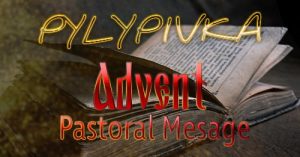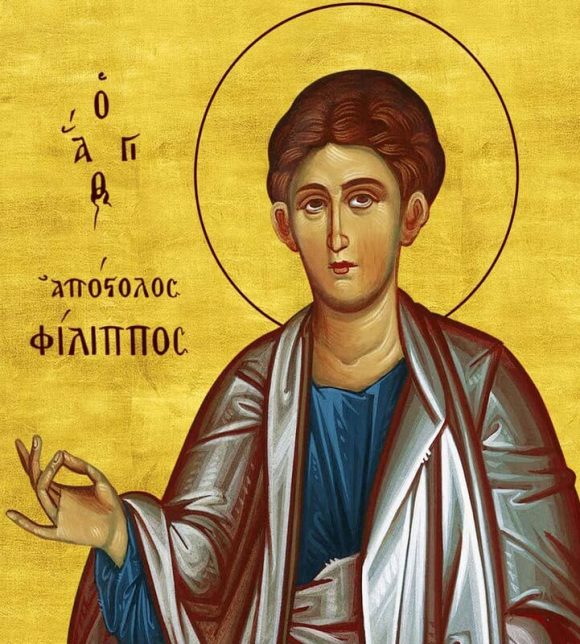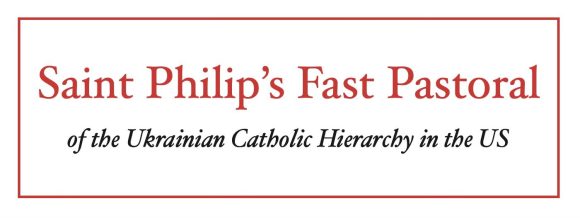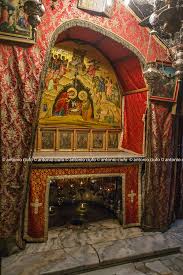 PHILIP’S FAST (PYLYPIVKA) PASTORAL OF THE UKRAINIAN CATHOLIC HIERARCHY OF THE U.S.A. TO OUR CLERGY, HIEROMONKS AND BROTHERS, RELIGIOUS SISTERS, SEMINARIANS AND BELOVED FAITHFUL,
PHILIP’S FAST (PYLYPIVKA) PASTORAL OF THE UKRAINIAN CATHOLIC HIERARCHY OF THE U.S.A. TO OUR CLERGY, HIEROMONKS AND BROTHERS, RELIGIOUS SISTERS, SEMINARIANS AND BELOVED FAITHFUL,
Glory to Jesus Christ!
St. Philip’s Fast or Pylypivka is about to start. It is a joyful 40-day fast, which begins on November 15, the day after the feast of the apostle St. Philip, and lasts until December 24, Christmas Eve. This fast is meant to prepare us spiritually for the great and solemn holyday – the Nativity of Our Lord Jesus Christ. This is the time given to us to deepen our understanding and awareness of God’s mystery – the Incarnation of the Son of God and the coming of the Messiah, the King of Peace, Emmanuel and the Light of the world. It is time for us to find and rediscover true joy of the Nativity of Our Lord through prayer, meditation, and acts of charity, not like it is in the artificial atmosphere of Christmas parties, buying and exchanging gifts and enjoying specially prepared holiday delicacies.
We may think that the coming of Christ is a completed event and a historical fact of the past, and the anticipation of His coming is only symbolic for us. It is not! Christ always comes to us. He is constantly born spiritually in the heart of every person who believes and expects Him. He comes to us in prayer and the Holy Mysteries, especially in Holy Confession and Communion. Today He comes to be with us and among us.
This year, St. Philip’s Fast and the understanding of the coming of Christ and His presence among us takes on a special meaning and significance for us. In the midst of the relentless COVID-19 pandemic, the suffering of many from this deadly illness, often resulting in the sad and tragic loss of family members and friends, political discord and instability, riots, wars and human rights abuses around the world, we are thirsty for a deep awareness and conviction that Christ the Lord is truly present among us and that His grace is life-giving and necessary.
St. Philip’s Fast recalls for us the Old Testament and the world, which froze in anticipation of the coming of Christ, the Light of the world. We will hear readings from the books of the ancient prophets Nahum, Habakkuk, Daniel, and Isaiah, who prophesied of His coming eight centuries before He was born. They wrote that the Messiah was to be born in Bethlehem, about the escape of the Holy Family to Egypt and the return to Nazareth, about His healing of the sick, about His rejection by the chosen people, about His betrayal and taking thirty silver pieces by one of the apostles, about His crucifixion among robbers, about His side being pierced, about His Resurrection and Ascension to Heaven. Later, the holy evangelists, while writing the Gospels inspired by the Holy Spirit, will include these prophecies to show us that Jesus Christ is the Messiah that everyone expected and that He is truly the Son of God.


 PHILIP’S FAST (PYLYPIVKA) PASTORAL OF THE UKRAINIAN CATHOLIC HIERARCHY OF THE U.S.A. TO OUR CLERGY, HIEROMONKS AND BROTHERS, RELIGIOUS SISTERS, SEMINARIANS AND BELOVED FAITHFUL,
PHILIP’S FAST (PYLYPIVKA) PASTORAL OF THE UKRAINIAN CATHOLIC HIERARCHY OF THE U.S.A. TO OUR CLERGY, HIEROMONKS AND BROTHERS, RELIGIOUS SISTERS, SEMINARIANS AND BELOVED FAITHFUL, All Christian churches prepare for the feast of the birth of Christ by some sort of period of penance. The Western church calls this the period of Advent, connected with the Latin word for “come,” since we are waiting for Christ to come into our lives. We may be celebrating an event in the past, the birth of Jesus, the first coming of God into our world, but we are also celebrating the present, God coming into our own lives and into the world of today, and the future expectation of Christ’s second coming, when he will come in glory to judge tote world in righteousness.
All Christian churches prepare for the feast of the birth of Christ by some sort of period of penance. The Western church calls this the period of Advent, connected with the Latin word for “come,” since we are waiting for Christ to come into our lives. We may be celebrating an event in the past, the birth of Jesus, the first coming of God into our world, but we are also celebrating the present, God coming into our own lives and into the world of today, and the future expectation of Christ’s second coming, when he will come in glory to judge tote world in righteousness. The Philip’s Fast (Pylypivka), the pre-Christmas fast, begins today. The Church begins the Fast the day after the feast of the Holy and All-Praiseworthy Apostle Philip. The Fast is a period of 40 days of spiritual preparation for the celebration of the Nativity/Theophany cycle of the liturgical (Church) year.
The Philip’s Fast (Pylypivka), the pre-Christmas fast, begins today. The Church begins the Fast the day after the feast of the Holy and All-Praiseworthy Apostle Philip. The Fast is a period of 40 days of spiritual preparation for the celebration of the Nativity/Theophany cycle of the liturgical (Church) year.